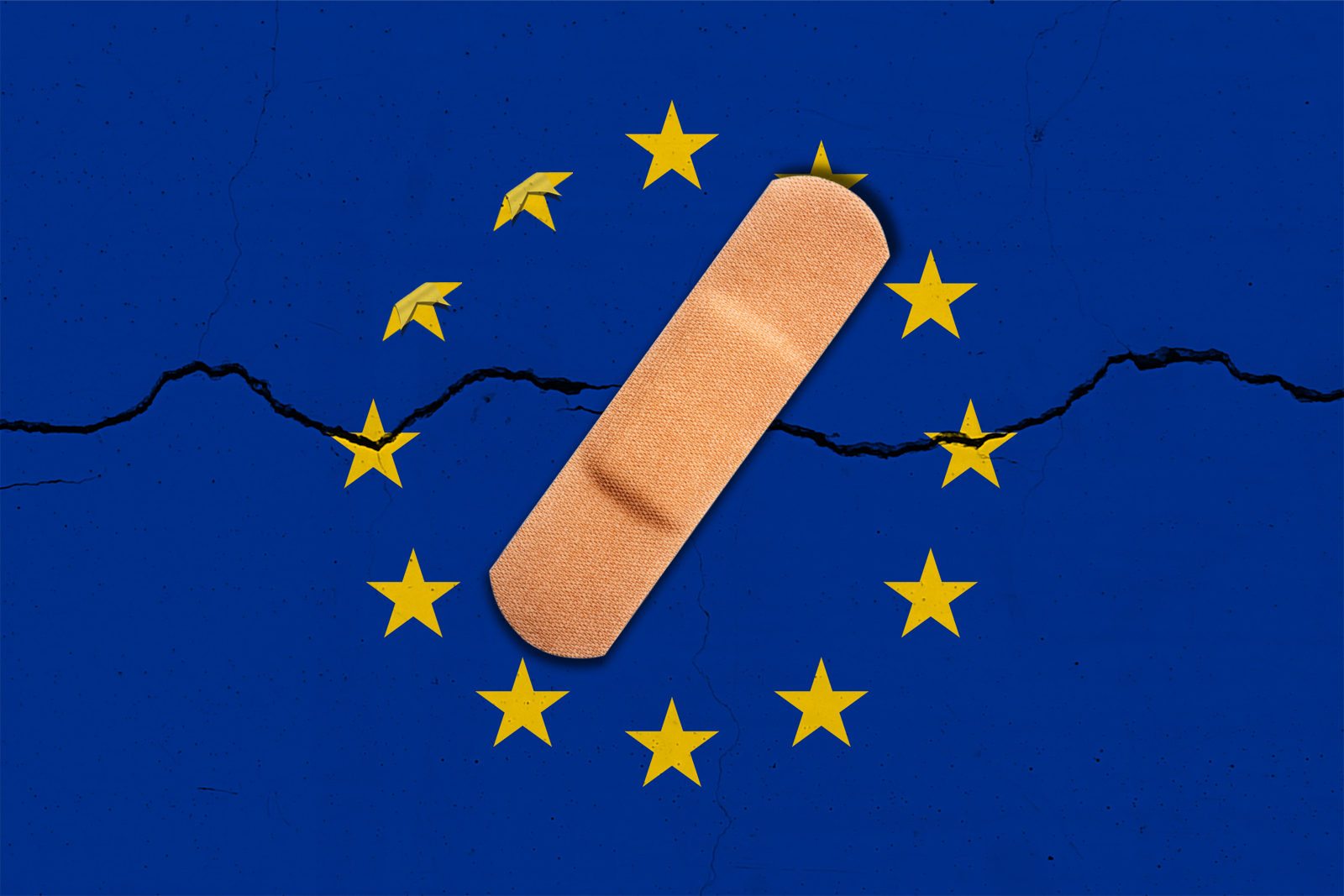
The Far-Right’s Shadow Over European Elections
On the cusp of the first European Parliamentary elections since the Lisbon Treaty’s enactment where the outcomes carry substantial weight, the starting gun has been fired. The EU-wide poll, a quintennial democratic exercise, officially commenced on February 22nd when the European Parliament in Brussels orchestrated a high-profile event to divulge its comprehensive blueprint for the eagerly anticipated elections.
In a historical context, the 2014 elections witnessed a paltry turnout of just 42 percent across the member states, a figure which surged to slightly above the halfway mark in 2019—a jump partially attributed to a costly yet extravagant communications strategy. With aspirations high, it is anticipated that the 200 million Europeans who participated in the last ballot will renew their civic engagement in the upcoming poll scheduled for June 6-9.
Nevertheless, an inescapable topic that the intellectual and political circles in Brussels and Strasbourg seem less inclined to address is the predicted swell in support throughout Europe for the far-right.
Europe’s governing echelons have been forewarned to steel themselves for the electoral equivalent of a tremor this June, according to the extensive new polling data released by the European Council on Foreign Relations (ECFR), a Berlin-based think tank. The data projects a tide of support for anti-European, populist, right-wing entities, and a corresponding contraction of backing for the traditional mainstream parties.
The unvarnished advice is particularly opportune as it heralds the onset of the 100-day countdown to the elections, beginning on February 27.
Europeans, already beleaguered by the triple crises of a health pandemic, numerous wars, and an economic downturn, is poised to have the chance to go to the polls to elect 720 MEPs (an increment from the previous 705).
The last EU elections in 2019 marked a significant and warmly received uptick in turnout, but the forewarning now is that the EU should prepare for an election night that is poised to be remembered for an entirely different narrative.
The far-right faction within the Parliament, known as Identity and Democracy (ID), is anticipated to accrue upwards of 40 new seats. With a total of 100 seats, they are positioned to become the third-largest political force in the forthcoming legislative term, potentially eclipsing the centrist group Renew Europe (RE).
It is projected that anti-European populist parties will dominate the polls in at least nine EU member states (Austria, Belgium, the Czech Republic, France, Hungary, Italy, the Netherlands, Poland, and Slovakia) and achieve second or third-place finishes in another nine (Bulgaria, Estonia, Finland, Germany, Latvia, Portugal, Romania, Spain, and Sweden), setting the stage for a possible majority coalition of the “populist right” for the first time, with the ID group and the European Conservatives and Reformists (ECR) poised to make significant gains, thereby precipitating a pronounced rightward shift in the Parliament’s balance.
These election results suggest that while the two predominant political groups—the European People’s Party (EPP) and the Progressive Alliance of Socialists and Democrats (S&D)—are set to remain the largest blocs, both are likely to “continue a path of hemorrhaging seats,” as evidenced in the past two electoral cycles, according to Kevin Cunningham and Simon Hix with the European Council on Foreign Relations.
The ramifications of these results are profound for the EU’s policy trajectory, encompassing the ambitious European Green Deal, the ongoing support for a beleaguered Ukraine, and the bloc’s enforcement of its rule of law principles.
In the current parliamentary session, a centre-left coalition has tended to prevail on environmental policy issues, albeit often with razor-thin margins. However, with a significant ideological shift towards the right on the horizon, it is conceivable that a coalition opposing climate policy action will ascend to prominence post-June.
The inclusion of “pro-Russian blocs” in the ensuing parliament, coupled with a dilution of the political coalition dedicated to upholding “democratic European values,” could have implications for Ukraine’s defense efforts and the EU’s future capacity to uphold its rule of law.
The anticipated decline in backing for the mainstream political factions, alongside the ascent of extremist and marginal parties, is expected to pose “significant” hazards to the keystones of the European agenda. These include the European Green Deal, the sustained support for Ukraine amidst its conflict, and the trajectory of EU enlargement.
This dynamic is also pivotal because MEPs play a role in determining the next Commission President, with the incumbent, Ursula von der Leyen, widely predicted to pursue a second five-year term.
Where to expect the biggest shockwaves.
Italy stands on the precipice of a political reshuffle, with Fratelli d’Italia poised to enhance their representation, potentially commanding up to 27 MEPs. France, too, is at a pivotal moment; amidst a 70% disapproval rating for President Emmanuel Macron’s administration and escalating support for Marine Le Pen’s National Rally, the political landscape braces for an upheaval, the reverberations of which may set the stage for the 2027 presidential elections.
Austria’s radical right Freedom Party is forecasted to triple its MEP count ahead of national elections, signaling a rightward momentum. In Germany, the surge of Alternative für Deutschland could redefine its role in the EU, doubling its presence to 19 seats ahead of the country’s 2025 parliamentary elections.
Further rightward consolidation is anticipated from Poland’s Confederation party and Bulgaria’s Revival, collectively bolstering the EU Parliament’s right flank by seven seats. Notably, Bulgaria’s pro-Russian Revival party is slated for its parliamentary debut, securing three seats, a move that could bolster its national prominence before the forthcoming elections.
Hungary’s Fidesz, led by its populist president, Viktor Orbán, is projected to secure 14 seats, a result that could reinforce Orbán’s defiant stance against Brussels’ mainstream politics.
In a post-Brexit landscape, the UK abstains from these elections, yet the 3 million EU citizens residing in Britain maintain their electoral rights, as highlighted at the EU Parliament’s election kickoff.
Mirroring the ascendancy of the right-wing across Europe is the UK’s Reform UK, with Nigel Farage as its honorary president, hinting at a parallel shift in British politics. Reform UK’s recent by-election performance, capturing significant vote shares, serves as a forewarning to the Conservative Party before the next general election.
Denis MacShane, former UK Europe Minister, underscores the heterogeneity of the nationalist right. While figures like Marine Le Pen and Giorgia Meloni have temporarily reconciled with the EU, other factions, such as Germany’s AfD and Geert Wilders’ PVV in the Netherlands, remain more extreme, harboring open racial and religious prejudices reminiscent of the darkest chapters of the 1930s.
MacShane points out the fiscal conservatism permeating the right, with policies like ‘debt brakes’ gaining traction, especially within Germany’s Free Democratic Party. He also notes a discernible ‘Ukraine fatigue,’ where demands for increased military spending are met with voter discontent, signaling a shift in public sentiment against escalated arms expenditure.
The European Council on Foreign Relations cautions that the EU’s rightward drift, potentially catalyzed by a Donald Trump comeback, could preempt national electoral shifts in Austria, Germany, and France. The burgeoning right-wing presence in the European Parliament is a clarion call for policymakers to grasp the full magnitude of the EU’s stakes.
The election’s repercussions may be extensive, potentially obstructing legislative initiatives critical to the European Green Deal, and influencing policies on EU sovereignty, immigration, enlargement, and sustained support for Ukraine beyond June 2024. With the prospect of an isolationist U.S. under Trump, Europe faces the challenge of a less engaged ally.
Simon Hix warns of the populist surge, which may peak with Trump’s reemergence. He urges mainstream parties to heed voter demands and advocates for a Europe assertive on the global stage. Hix posits that the June elections are pivotal for those envisioning a globally proactive Europe, emphasizing the importance of campaigns that inspire optimism and champion multilateralism.
Kevin Cunningham suggests that the study’s findings herald a significant shift in the European Parliament’s composition, portending substantial implications for the European Commission and Council’s environmental and foreign policy ambitions, including the European Green Deal’s forthcoming phase.
